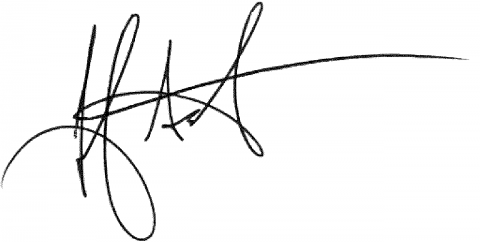Columbia College | Columbia University in the City of New York
Who Are We Becoming?

EILEEN BARROSO
Let everything happen to you: beauty and terror.
Just keep going. No feeling is final ...
Nearby is the country they call life.
You will know it by its seriousness.
Any accounting of recent events — whether local, national or global — speaks to a pace of change and disruption that can be hard to process, let alone keep up with. A world of consequence and urgency. Beauty and terror, crisis and opportunity, at once. Full of seriousness to be sure, but also of hope and — most certainly on a day like today — an abundance of joy. Rilke reminds us that none of these feelings are final, and we would do well to remember that this is as much a new beginning as an end.
So, amidst this flood of feelings I found myself returning to a basic question: Who are we becoming?
In Democracy in America, Alexis de Tocqueville writes, “Without common ideas, there is no common action, and without common action men still exist, but a social body does not.” Our society, at any level, cannot function without some shared frame of reference. What, then, results when we lose our ability to recognize some- thing shared across our differences?
If we fail to consider our mutual responsibilities — the question of what we owe to each other, that the “I” must be understood in relation to the “we” — each of us is left with, what? A mix of insular ambition, narrow self-interest and factional striving?
If this sounds all too familiar, whether in the context of our campus community or some larger stage, it is a situation in which each of us bears a responsibility. How do we find a path forward? What options are open to us? Which are closed? And what possible futures will be foreclosed if we fail to apprehend the “we”?
There are no easy answers to these questions. It takes patience and an openness to the possibility that strangers who embody every imaginable kind of difference — even purported adversaries — can find and pursue a common purpose. This is the power that the idea of this academic community holds, a vision that is as socially inclusive as it is intellectually expansive.
The process of learning and living together, of learning to live together, is neither simple nor direct. Indeed, the complexity and conflicts that delimit the path you have been on is as much a part of your education as time spent in the classroom — a shared context defined by balancing the pursuit and pulls of academic excellence, civic engagement and personal well-being. It took time to find your way.
The role you have played in each other’s success did not require you to agree with one another, or even to agree with what you were being taught. In fact, it required you to disagree, to challenge one another, to interrogate your instructors and even this institution, and to learn from all of these experiences. Above all, I hope, it required that you respect one another.
Columbia is not a simple place, but the world “beyond the Gates,” as we say, is orders of magnitude more dynamic, nuanced, complex — filled with both beauty and terror on a different scale.
I hope you will stay patient.
Not patience in the face of injustice. Not complacency with the state of the world. We expect that you will continue to struggle to make this world a better place — you are Lions, after all. But that struggle requires us to stay open to possibility, a precondition for the building of common ground.
My hope for you is that you will be patient with and extend grace to the people you encounter along the way. Good people get it wrong every single day. People of integrity don’t always make the best decisions. Not one of us is not in the process of becoming.
None of us here today know who you — or who we — will become as the years unfold. But I do know that you, and that we, have the tools to build a life of engagement, achievement and sustained learning.
Each of us, and all of us together — we get to choose who we are becoming.
It is my firm belief that before me sit the leaders, thinkers and principled actors who will help forge a brighter future. I say belief and not merely hope because, throughout Columbia College’s long history, those who came before you have done just that.
And so, Class of 2025, I leave you with my most sincere salutations, with confidence in your capacity to face forward with grace, and my deepest respect. Good luck on the journey ahead.

Josef Sorett
Dean of Columbia College and the Henry L. and Lucy G. Moses Professor; Vice President for Undergraduate Education; Professor of Religion and African American & African Diaspora Studies
Issue Contents
Published three times a year by Columbia College for alumni, students, faculty, parents and friends.
Columbia Alumni Center
622 W. 113th St., MC 4530, 6th Fl.
New York, NY 10025
212-851-7852
cct@columbia.edu
Columbia Alumni Center
622 W. 113th St., MC 4530, 4th Fl.
New York, NY 10025
212-851-7488
ccalumni@columbia.edu

